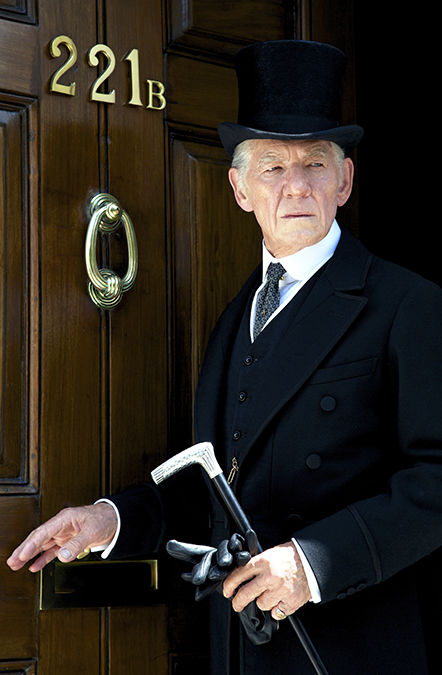In “Mr. Holmes,” audiences are shown a side of Sherlock Holmes which has received short shrift since the turn of the century — his spirituality and essential goodness.
As a member of the Baker Street Irregulars, I have bemoaned bizarre misrepresentations of Holmes as an alcoholic, somewhat perverse hedonist, such as in “Sherlock: A Case of Evil” (USA network, 2002), and in “Sherlock Holmes” (Warner Brothers, 2009) in which Irene Adler leaves a scruffy version of the detective naked, handcuffed to a bed.
In “The Case of the Whitechapel Vampire” (Hallmark Channel, 2002), while attempting to solve the murders of Anglican monks, Holmes, with missionary-like zeal, is made to exalt human reason over the existence of God and deny belief in an afterlife.
The need to reconstruct Holmes as immoral and irreligious reflects only the beliefs of latter-day writers, directors and producers desirous of promoting an addiction to malevolence and renunciation of God. It is in total contradiction to the character found in the original 60 cases written by Sir Arthur Conan Doyle.
To quote the Catholic writer, G. K. Chesterton, whose superb Father Brown detective series grew out of his vast enjoyment of Holmes’ adventures: “Reason itself is a matter of faith. It is an act of faith to assert that our thoughts have any relation to reality at all.”
In this Sherlock Holmes concurs. In the original canon the detective is highly respectful of belief in God as something quite rational.
Pausing to pluck a moss rose, Holmes interrupts his investigation in “The Naval Treaty” to philosophize: “There is nothing in which deduction is so necessary as in religion. It can be built up as an exact science by the reasoner. Our highest assurance of the goodness of providence seems to me to rest in the flowers. All other things, our powers, our desires, our food, are all really necessary for our existence in the first instance. But this rose is an extra. Its smell and its color are an embellishment of life, not a condition of it. It is only goodness which gives extras, and so I say again that we have much to hope from the flowers.”
Reason dictates that there is a supreme intellect and an afterlife. After solving the sordid affair in “The Adventure of the Cardboard Box,” Holmes plaintively cries out, “What is the meaning of it, Watson? What object is served by this circle of misery and violence and fear? It must tend to some end, or else our universe is ruled by chance, which is unthinkable.”
Holmes occasionally lets criminals off, such as in “The Blue Carbuncle” when, one Christmastide, he chases James Ryder, a thief, out of his Baker Street sitting room, sure that the man has seen the error of his ways. “I suppose that I am commuting a felony,” he remarks to Dr Watson, “but it is just possible that I am saving a soul … besides, it is the season of forgiveness.”
At the same time, in “The Boscombe Valley Mystery,” Holmes understands the need to express penitence and to be sorrowful for committing sin in Christian terms: “Self-reproach and contrition . . . appear to me to be the signs of a healthy mind, rather than of a guilty one.” Again, knowing the criminal is about to die, Holmes makes no move to turn him over to the authorities, noting, “You are yourself aware that you will soon have to answer for your deed at a higher court than the Assizes.”
In “The Veiled Lodger,” there is something exceedingly Christ-like in Holmes’ advice to a woman whose scarred, distorted face drives her to contemplate suicide:
Holmes: “Your life is not your own. Keep your hands off it.”
Eugenia Ronder: “What use is it to anyone?”
Holmes: “How can you tell? The example of patient suffering is in itself the most precious of all lessons to an impatient world.”
So much for “death with dignity” advocates. Life with dignity is ever so much more courageous. To quote Chesterton once more, attempting to inject Sherlock Holmes with “a new philosophy generally means in practice the praise of some old vice.”
Only rational goodness can defeat mindless evil. We have, therefore, much to hope from the real Sherlock Holmes.

